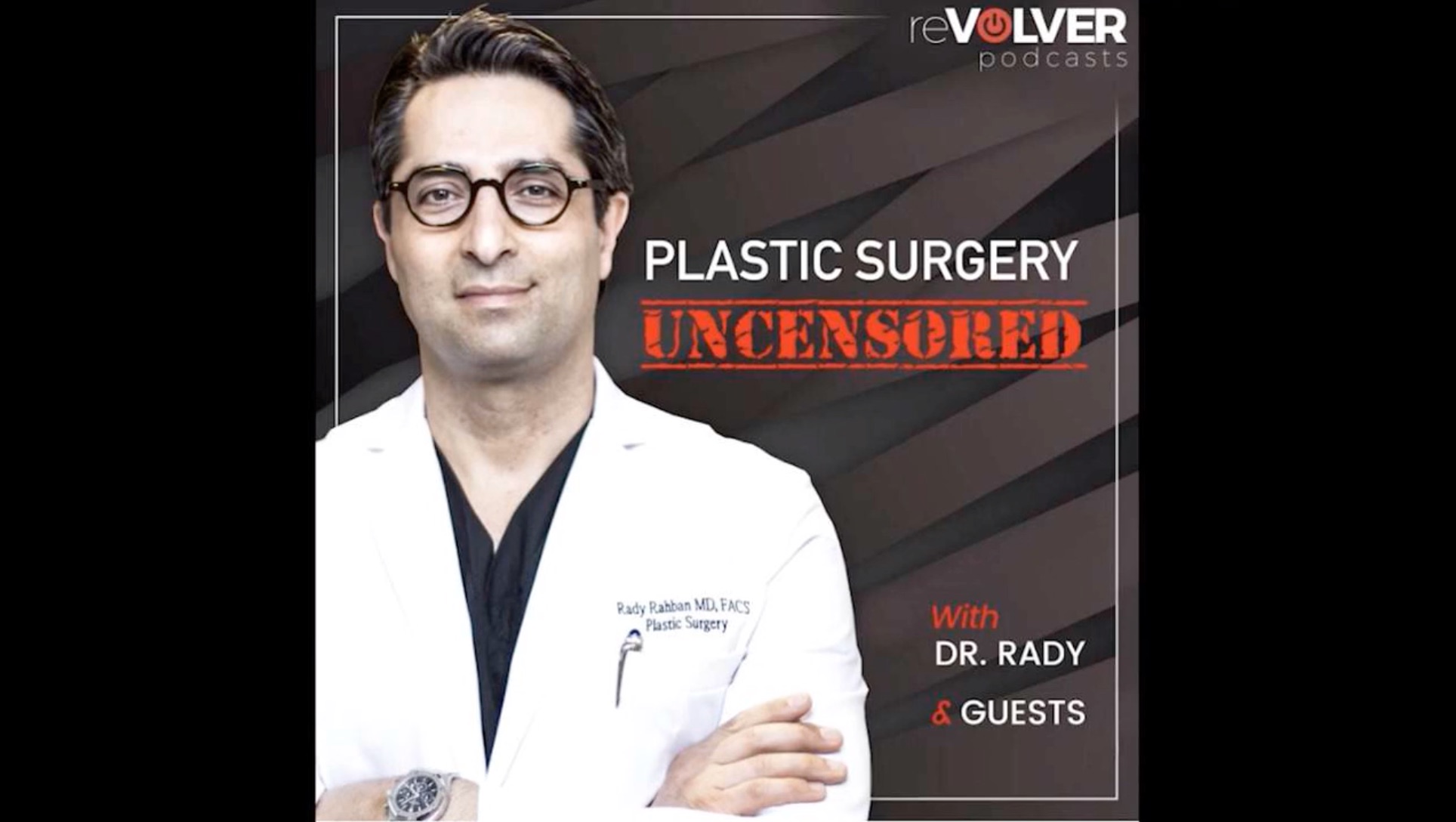When patients enter Dr. Rahban’s Beauty After Baby, they occasionally express concerns about anesthesia. Most patients who muster up the courage to go through a mommy makeover or other plastic surgery express greater concern over anesthesia than the actual surgical procedure. The concern is understandable but unwarranted, usually a result of existing misconceptions about anesthesia use.
Dr. Rahban assures all his patients that he administers anesthesia safely and without complications. However, the only way to challenge possible misconceptions or false notions about anesthesia is through a concerted drive towards education and transparency. Dr. Rahban carefully discusses the procedure and answers all your concerns about anesthesia to ensure you feel mentally comfortable during the procedure.
Screening & Pre-Op
Your anesthesia experience begins before you enter the operating room for your cosmetic surgery. During your initial consultation, Dr. Rahban runs through tests and discusses your medical history to minimize the risk of potential anesthesia complications. As such, Dr. Rahban curates the ideal anesthesia protocol before the surgery even begins.
Unlike most surgeons who focus primarily on their area of expertise, Dr. Rahban examines your overall health for a comprehensive and cohesive anesthesia plan. After the initial evaluation, once you decide to proceed with the surgery, Dr. Rahban orders various laboratory tests and studies, including a mammogram, bloodwork, etc. He aims to identify the slightest sources of anesthesia complications and buttress against them to ensure safe and predictable results.
One of the questions we often receive is, “Am I ineligible for surgery if I suffer from a chronic health condition(s)?” Well, you’re not ineligible for surgery, but you need clearance from the relevant specialty doctor(s). Dr. Rahban goes a step further than most cosmetic doctors, collaborating with your doctors to curate the ideal surgical and anesthetic plan for your specific needs. He cares more about your overall health than the surgery, so he carefully listens to your specialty doctors’ recommendations, and, if necessary, postpones the surgery until a time when you’re physically prepared.
The Importance of a Qualified Anesthesiologist
Most patients spend countless hours to research and find the perfect plastic surgeon. Perhaps you’ve gone a step further and even interviewed multiple plastic surgeons. But how many anesthesiologists have you researched and consulted? Your answer is probably “none,” much like most cosmetic surgery patients.
Most patients don’t know a thing about their anesthesiologist until the hour before the surgery. And that’s not really your fault. The truth is, even most plastic surgeons don’t know who their anesthesiologist will be until shortly before the surgery. Most plastic surgeons and patients alike pay too little emphasis on quality anesthesiology, a minor but significant oversight.
However, Dr. Rahban understands the importance of quality and predictable anesthesiology, which is why he has worked exclusively with the same anesthesiologists for over 15 years. He has selected the anesthesiologists after carefully vetting them, working with them, and ensuring the most consistent and highest standards of care.
When you select Dr. Rahban as your plastic surgeon, you can rest assured that you’ve also selected a carefully-vetted and experienced anesthesiologist. Dr. Rahban believes anesthesiology should be a core component of your initial discussion. As such, you can talk to him about your anesthesiologist during the initial consultation and decision-making process.
When it comes to anesthesiology, you must understand that there’s a hierarchy of providers present during your surgery. Like plastic surgeons, anesthesiologists also have special degrees, training, and skills.
For example, anesthesia can also be administered by a Certified Registered Nurse Anesthetist (CRNA), i.e., a nurse with specialized training in anesthesiology. There’s nothing wrong with CRNA-administered anesthesia, and there are several exceptional CRNA providers, but their training isn’t nearly as extensive as that of a doctor specializing in anesthesiology.
Most patients don’t realize that certain nurses are trained to provide anesthesia, and they’re often taken aback by that discovery. As such, it helps to do your research and find the right anesthesiologist before the surgery.
As with all other areas of medicine, you can also find mediocre, good, or exceptional anesthesiologists. You must ask yourself whom you would want as your family’s anesthesia provider — the mediocre anesthesiologist, the good anesthesiologist, or the exceptional anesthesiologist? As is often the case, better providers have more experience, which also makes them more expensive. When it comes to your physical health and overall safety, it’s better to pay more for high-quality and exceptional care.
The only issue is that patients don’t get to select their anesthesiologist. You select the plastic surgeon, who, in turn, selects the anesthesiologist. Thus you should talk to your plastic surgeon about anesthesiology during your initial consultation.
Dr. Rahban believes nothing is more important than your safety. He selects the most reputable anesthesiologists to accompany him during the surgery, placing supreme importance on your best interests and safety. Dr. Rahban selects anesthesiologists with whom he has developed a strong working relationship over several years, many of whom have also taken care of his closest friends and family members. Such camaraderie and faith speak volumes to their capabilities, and they’ve together performed hundreds and thousands of successful surgeries without complications.
What We Do To Ensure An Optimal Anesthesia Experience
Besides the excitement about the results, most patients also deal with a fair bit of anxiety about the procedure. Dr. Rahban understands those anxieties, and he actively does everything in his power to mitigate those anxieties, ensuring a smooth, seamless, and comfortable experience. Dr. Rahban and the anesthesiologists have specific protocols and medications to minimize potential side effects.
Nausea
Most patients experience a little nausea after receiving general anesthesia. However, your anesthesiologist can take precautions to minimize or prevent nausea. Dr. Rahban’s anesthesiologists administer some or ALL of the following medications through IVs to prevent nausea:
- Reglan
- Zofran
- Droperidol
- Decadron
- Propofol
- IV Hydration
- Scopolamine Patch
Pain
You can’t avoid mild pain or discomfort after surgery. However, most patients fear unbearable pain, something modern medicines allow us to avoid altogether. Dr. Rahban wants you to have the most painless and comfortable procedure possible, so he takes several proactive measures to minimize or prevent pain:
- Nerve Blocks: Marcaine and Experal (powerful pain medications used in spine and orthopedic surgeries)
- Prescription Pain Medications
- Muscle Relaxants
Fear of IV Insertion
While some patients have no problems with IV insertion, others are absolutely terrified of IV placement. Dr. Rahban validates your anxieties, and his anesthesiologists have extensive experience with pediatrics, so they understand just how to place IVs without any pain.
We do everything in our power to ensure your experience is mentally and physically comfortable. If necessary, we administer gas anesthesia during IV insertion, i.e., you breathe deeply from a calming gas while we insert the IV.
Sore Throat
You may experience a little sore throat after the surgery, usually resulting from the breathing tube placed by the anesthesiologist at the beginning of the surgery. Almost all anesthesiologists do this with a traditional laryngoscope, which can be rough on your throat, leading to soreness. However, Dr. Rahban’s anesthesiologists use an advanced glidescope to ensure this process is effortless and comfortable.
Glidescopes use cameras that visualize your vocal cords, so the anesthesiologist can carefully insert the tube without scraping your vocal cords, ensuring no trauma or discomfort. Dr. Rahban enforces this standard of care for all his anesthesiologists because he values your comfort above all else.
Intraoperative Awareness
Patients often fear waking up during surgery, but that’s mostly an urban legend, boogeyman concern. Patients receive multiple anesthetic drugs that place them into a deep and bullet-proof sedative state, making it impossible to wake up during the procedure.
The fear still holds some water with conscious sedation, i.e., a lighter form of anesthesia. However, Dr. Rahban wants you in a deep and comfortable slumber during the procedure, so he exclusively provides general anesthesia instead of conscious sedation.
Deep/Calm Extubation
Dr. Rahban only considers anesthesiologists who can effectively extubate the patient, i.e., remove the tube from the body while still in a deep sedative state. When a patient wakes up from anesthesia, they go through several levels of consciousness.
Most inexperienced anesthesiologists remove the breathing tube once the patient is almost completely conscious to ensure they can control their airways, minimizing the risk of complications. However, as patients arise from their sedative state, they’re agitated by the extubation process, leading to increased blood pressure, possibly compromising the outcome. As such, extubation in the conscious stage may lead to a sore throat.
However, experienced anesthesiologists remove the tube when you’re in a calm, peaceful, and deeply-sedated state. They need to time it just right to ensure you’re still sedated during extubation, which requires extensive knowledge and skills. Only a few anesthesiologists can time the extubation to prevent complications or discomfort.
For more information on anesthesiology, please watch Plastic Surgery Uncensored, a two-part series in which Dr. Rahban has an open, frank, and comprehensive discussion with his favorite anesthesiologist.
In Conclusion…
We hope you now feel comforted and better informed about the anesthesia process. These days, general anesthesia is considered a completely safe and comfortable process, and most patients have no complications with anesthesia. According to ASAPS, there were more than 18 million cosmetic procedures in 2019, and they had a negligible complication rate of less than 1%, which just shows that there’s nothing to fear.
However, you can further calm your nerves and ensure the most comfortable experience by asking the right questions during your initial consultation. Ask your plastic surgeon about their anesthesiologists and the complete anesthesia process. As mentioned above, Dr. Rahban carefully selects the very best anesthesiologists to ensure you feel absolutely no pain, discomfort, or anxiety during the process. You can let go, drift into a deep slumber, and wake up to a new you!





